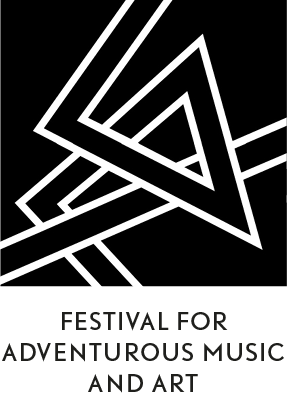Calendar

Technosphärenklänge #6
Haus der Kulturen der Welt , John-Foster-Dulles-Allee 10, 10557 Berlin → MapTickets: 18 € / 14 € reduced
23
FriDigital technologies, artificial intelligence, robotics, and new means of communication are rapidly changing our way of thinking and doing as well as our bodies and our relationships with each other. Intelligent software, sensors, interfaces, protocols, and robots are anything but passive work tools, drastically changing the physiological, experiential, psychological, and cultural foundations of human life and experience. The sixth edition of the Technosphärenklänge series by HKW and CTM Festival enters these new realities by means of sound and performance, showcasing collaborative artistic practices that can produce new and hybrid identities between humans and machines.
For their latest album, Dimensional People, Mouse on Mars brought together a top-class cast of more than 50 international musicians as well as a constellationof old and new technologies to explore collaborative music making as a model for an open, networked, polyphonic society. Taking off from the album process, they produce a stage version with their Mouse on Mars Dimensional People Ensemble that includes collaborators Andrea Belfi, Zach Condon from the band Beirut, Benjamin Lanz from The National, Moritz Simon Geist, and Dodo Nkishi among other. The technologies take different shapes, such as Moritz Simon Geist’s Sonic Robots, Mouse on Mars’s MoMInstruments or modified sound producing lights, and act as both independent voices and translators or mediators for the human encounters.
In Alia: Zǔ tài, the world premiere collaboration between Italian sound and performance artist Marco Donnarumma and Chinese choreographer Nunu Kong, three dancers wear three intelligent robot prostheses on their bodies, interacting in a thought-provoking, stirring, and poetic choreography of movement, computer controlled sound, and light. The dancers and the machines engage in a re-discovery of the self and the other, arriving at common hybrid identities in which both the power and vulnerability of people and technologies are revealed. The title of the piece combines the Latin "alia" - the other - with the Chinese term "zǔ tài" - configuration. It is thus an emphatic plea against the on-going processes of "othering" and the marginalisation of so-called "others" on the basis of body, identity, gender, or ethnicity.
Alia: Zǔ tài is based on the collaboration of an interdisciplinary team: the robots and AI technologies were developed in collaboration with Prof. Manfred Hild of the Neurorobotic Resarch Laboratory of the Beuth Hochschule für Technik Berlin and designed by the award-winning designer, Ana Rajcevic. The sound composition was created in cooperation with composer and expert for interactive computer music, Alberto de Campo. The piece was developed between China and Germany together with the Chronus Art Center, Shanghai, and CTM Festival, Berlin.
Mouse on Mars Dimensional People Ensemble
Jan St. Werner – Live Electronics
Andi Toma – Live Electronics, Guitar
Andrea Belfi – Drums
Zach Condon – Voice, Piano
Moritz Simon Geist – Sonic Robots
Benjamin Lanz – Trombone
Dodo NKishi – Percussion, Drums, Guitar
Matthias Singer – Light
Max Koerich – Sound
Alia: Zǔ tài (From the 7 Configurations Cycle)
A performance by Marco Donnarumma in collaboration with Nunu Kong.
Marco Donnarumma – Concept, research, artistic direction, music and programming
Nunu Kong – Choreography, dramaturgy, research
Lingling Chen – Performance
Neurorobotics Research Laboratory, Beuth Hochschule - Scientific partner
Ana Rajcevic – Robotics visual design
Christian Schmidts – 3D modeling and printing
Andrea Familari – Stage production
Prof. Alberto de Campo – Additional programming and research
GING, Manuel Vason – Photography
Protopixel – Light technology
Alia: Zǔ tài is a co-production by CTM Festival and Chronus Art Center, Shanghai, funded by the Goethe-Institut’s International Co-Production Fund. The project is supported by the UdK Berlin Graduate School, the Berlin Center for Advanced Studies in Arts and Sciences, the Neurorobotics Research Laboratory of the Beuth Hochschule für Technik Berlin, Baltan Laboratories (Eindhoven), and Resonans Festival (Frederiksberg).

